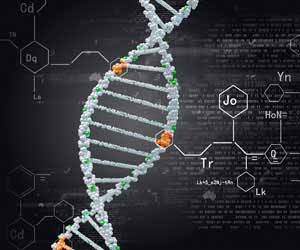PrimPol is used in cells when normal repair proteins encounter damaged sections of DNA, often caused by anticancer chemotherapy drugs.

TOP INSIGHT
DNA damage happens constantly -- more than 100,000 events occur in every human cell each day. PrimPol is necessary for the cell to repair DNA damage.
"PrimPol can counter the anti-cancer action of common chemotherapeutic agents such as cisplatin. By inhibiting PrimPol, we believe that we can increase the efficacy of chemotherapeutic agents in the treatment of many cancers," he says.
DNA damage happens constantly -- more than 100,000 events occur in every human cell each day. PrimPol is necessary for the cell to repair DNA damage, but sometimes this may not be to the individual's benefit, as in the case of resistance to chemotherapeutic agents, says the study's co-lead author, Olga Rechkoblit, PhD, Assistant Professor of Pharmacological Sciences at ISMMS.
The basic steps involved in DNA replication are known. The first step involves unzipping the intertwined double helix DNA structure, creating a "Y" shape known as a replication fork. These two strands act as templates for making the new DNA strands. A short piece of RNA known as a primer (produced by a primase enzyme) acts as the starting point for the synthesis of new DNA.
"It had been believed that DNA polymerase and primase activities in human cells were the province of separate enzymes. Then PrimPol was discovered, and the understanding of DNA replication changed dramatically. PrimPol was found to be capable of both restarting and performing DNA synthesis after DNA replication stalls," says Dr. Rechkoblit.
"Because the three-dimensional structure of the enzyme is so different from that of other DNA polymerases, it required a group effort to elucidate its structure," says Dr. Aggarwal. The clinical implications are clear, Dr. Rechkoblit says.
"The idea would be that a patient could be given a PrimPol inhibitor -- an agent that shuts down this clever machine -- at the same time as chemotherapy, so that cancer cells cannot repair the killing damage chemotherapy offers," she says.
Source-Eurekalert
 MEDINDIA
MEDINDIA




 Email
Email










